
Find out why investing in Thailand property offers unique advantages, including affordable living costs, high rental yields, and access to a growing market.
Uncover the best cities and regions for property investment, such as Bangkok, Phuket, and Chiang Mai.
Understand the legal and administrative procedures involved in buying and selling property, and the important role of real estate agents and other professionals.
Key Takeaways
| Topic | Key Takeaway |
|---|---|
| Overview of Thailand’s Property Market | The property market in Thailand is experiencing steady growth, with demand for residential and commercial properties on the rise. |
| Analyzing trends and growth opportunities | Tourism, the growing economy, and improving infrastructure contribute to growth opportunities in the Thai property market. |
| Factors driving property prices | Location, demand for beachfront or scenic properties, proximity to amenities, infrastructure, and economic growth affect prices. |
| Benefits of Investing in Thai Property | Low cost of living, potential rental yields, strategic location in Asia, and potential for capital gains attract foreign investors. |
| Best places to buy property in Thailand | Bangkok, Phuket, and Chiang Mai are popular cities for property investment, offering a range of options and growth prospects. |
| Factors to consider when choosing a location | Rental yields, amenities, infrastructure, future growth prospects, market conditions, and real estate agent advice are important. |
| Potential growth areas and hotspots | Pattaya, Hua Hin, and Koh Samui are emerging growth areas, with government initiatives attracting investment and promoting growth. |
| Buying and selling process in Thailand | Due diligence, sale, purchase agreement, funds transfer, and property registration are steps in the buying process. |
| Role of real estate agents and Professionals | Real estate agents, lawyers, surveyors, and valuers assist with property transactions, legal matters, and property valuation. |
| Costs and taxes associated with buying | Transfer fees, stamp duty, business tax, withholding tax, legal fees, and other administrative costs should be considered. |
| Bangkok as a hotspot for property investment | Bangkok offers diverse property options, vibrant culture, economic opportunities, and modern infrastructure for property investors. |
| Buying land in Thailand for foreigners | Foreigners can own land through leasehold agreements or setting up a Thai company, while land ownership is more restricted. |
| Investing in Phuket’s property market | Phuket’s property market has experienced significant growth due to its beaches, resorts, and increasing international flights. |
| Property taxes in Thailand for foreign buyers | Foreign property owners must pay annual property tax and taxes on rental income, so understanding the tax laws is crucial. |
| Role of a real estate agent in Thailand | Real estate agents provide market knowledge, property selection, negotiation, and guidance throughout the buying process. |
| Factors affecting property prices | Supply and demand, economic factors, and regional differences impact property prices in Thailand. |
| Stamp duty and costs in property transactions | Stamp duty, legal fees, property registration fees, and professional charges are additional costs in property transactions. |
| Evaluating Return on Investment in Thailand | Factors such as property prices, rental income potential, and type of property should be considered when evaluating ROI. |
Overview of Thailand’s Property Market

Understanding the current state of the property market in
Thailand
The property market in Thailand is experiencing steady growth.
The demand for residential and commercial properties is on the rise, making it an attractive investment option for local and foreign investors.
The market has remained relatively stable over the past few years, with property prices continuing to appreciate steadily.
Analyzing trends and growth opportunities in the Thai
property market
There are several key trends and growth opportunities in the Thai property market.
The tourism industry is booming, attracting a large number of international visitors each year.
This has led to an increased demand for rental properties, especially in popular tourist destinations such as Phuket and Bangkok.
Additionally, Thailand’s growing economy and improving infrastructure make it an attractive destination for businesses and investors.
Exploring the Factors that drive property prices in Thailand
Several factors contribute to the rise in property prices in Thailand.
The location of the property plays a crucial role, with prime locations in cities like Bangkok commanding higher prices.
The demand for beachfront properties and properties with scenic views also drives prices up.
Other factors such as proximity to amenities, infrastructure developments, and the overall economic growth of the area, also impact property prices in Thailand.
The Benefits of Investing in Thai Property for Foreigners
Understanding the regulations and restrictions for
foreign property buyers in Thailand
Foreigners can buy property in Thailand, but there are certain regulations and restrictions that must be adhered to.
Foreigners are allowed to own condominium units outright, while land ownership is more restricted.
However, there are legal structures available, such as leasehold agreements and setting up a Thai company, that enable foreigners to have more control over land ownership.
Exploring the unique advantages and incentives for
foreign investors in Thai property
Investing in Thai property offers several unique advantages for foreign investors.
The cost of living is relatively low compared to other countries, making it an affordable investment option.
The potential rental yields in popular tourist destinations are also attractive, providing a steady income stream.
Additionally, Thailand’s strategic location in the heart of Asia offers access to a large and growing market, creating opportunities for business expansion and growth.
Analyzing the potential returns and long-term
benefits of investing in Thai property
Investing in Thai property can provide attractive returns and long-term benefits.
Rental yields in popular locations such as Bangkok and Phuket are generally higher compared to other countries.
The property market has shown resilience even during economic downturns, with prices continuing to appreciate over time.
Additionally, the potential for capital gains, in the long run, offers investors the chance to accumulate wealth over time.
Exploring the Best Places to Buy Property in Thailand
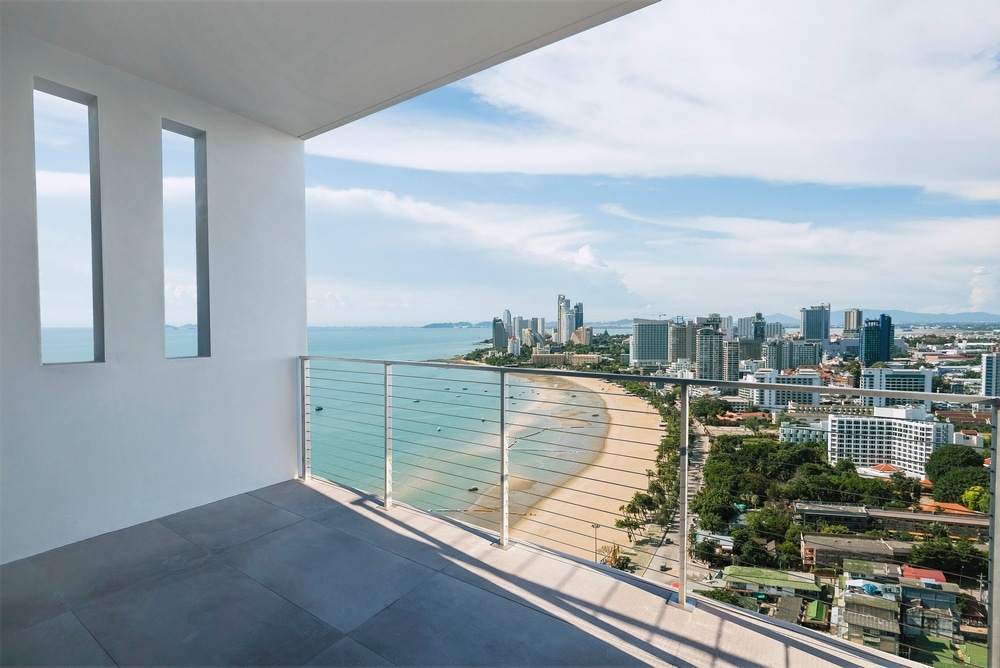
Highlighting the popular cities and regions for property
investment in Thailand
Thailand offers numerous attractive locations for property investment.
Bangkok, the capital, is a hotspot for investors, offering a wide range of properties such as condominiums, apartments, and commercial units.
Other popular locations include Phuket, renowned for its beautiful beaches and luxury resorts, and Chiang Mai, a cultural hub in the north of Thailand.
Analyzing the factors to consider when choosing the right
location for your property investment
When selecting a location for your property investment in Thailand, various factors must be taken into consideration.
This includes the potential for rental yields, access to amenities such as schools, hospitals, and shopping centers, infrastructure developments, and future growth prospects.
Additionally, researching the local market conditions and consulting with real estate agents can provide valuable insights into the best locations to invest in.
Exploring the potential growth areas and upcoming property
hotspots in Thailand
Thailand has several emerging growth areas and upcoming property hotspots.
These areas are characterized by significant infrastructure developments and government initiatives aimed at attracting investment and promoting economic growth.
Some potential growth areas include Pattaya, Hua Hin, and Koh Samui.
These locations offer a unique mix of natural beauty, tourist attractions, and investment opportunities.
Understanding the Buying and Selling Process in Thailand
Explaining the legal and administrative procedures involved in
buying property in Thailand
The buying process in Thailand involves several legal and administrative procedures.
This includes conducting due diligence on the property, drafting and signing the sale and purchase agreement, transferring funds through a local Thai bank account, and registering the property with the relevant authorities.
Engaging the services of a competent real estate lawyer and working with a reputable real estate agent can help you navigate these procedures smoothly.
Understanding the role of real estate agents, lawyers, and
other professionals in the process
Real estate agents, lawyers, and other professionals play a crucial role in Thailand’s property buying and selling process.
Real estate agents help identify suitable properties, negotiate prices, and facilitate transactions.
Lawyers assist with legal matters, ensuring the transaction’s legality and protecting the buyer’s interests.
Additionally, professionals such as surveyors and property valuers provide essential insights into the condition and value of the property.
Analyzing the costs and taxes associated with buying and
selling property in Thailand
When buying or selling property in Thailand, there are costs and taxes that must be considered.
These include transfer fees, stamp duty, specific business tax, and withholding tax.
It is important to budget for these costs in addition to the property’s purchase price.
Consulting with a tax advisor or real estate agent can clarify the applicable taxes and fees.
Bangkok: A Hotspot for Property Investment in Thailand

Exploring the real estate opportunities and property market
dynamics in Bangkok
Bangkok offers excellent real estate opportunities and a dynamic property market.
The city boasts diverse properties, from luxury condominiums in prime locations to affordable apartments in up-and-coming neighborhoods.
The market is fueled by local and foreign demand, with investors drawn to the city’s vibrant culture, economic opportunities, and modern infrastructure.
Analyzing the different types of properties available for
investment in Bangkok
Investors in Bangkok have a wide range of property types to choose from.
Condominiums are particularly popular, offering luxurious amenities, convenient locations, and the potential for high rental yields.
Other property types include houses, commercial units, and serviced apartments.
Investors can find suitable options to meet their preferences and financial goals depending on the investment strategy and budget.
Highlighting the key factors that make Bangkok an attractive
destination for property investors
Bangkok’s attractiveness as a property investment destination stems from several key factors.
The city’s strategic location in Southeast Asia makes it a hub for business and tourism.
The vibrant culture, world-class shopping and dining experiences, and diverse attractions draw millions of visitors each year.
Additionally, the city’s modern infrastructure, excellent transportation networks, and ongoing development projects contribute to its appeal to property investors.
Buying Land in Thailand: Regulations and Considerations for Foreigners
Understanding the regulations for foreign buyers
Foreign buyers are subject to certain regulations when it comes to purchasing land in Thailand.
According to Thai law, foreigners are not allowed to own land outright.
However, there are alternative options, such as leasehold ownership or setting up a limited company to hold the title deed.
Legal Considerations when buying land in Thailand
Before making a property purchase, conducting a thorough title search is crucial to ensure that the title is clear and there are no issues with ownership rights.
Working with a reputable property agent or lawyer specializing in assisting foreign buyers is also advisable.
They can guide you through the legal process and protect your interests.
Title deeds and property ownership
In Thailand, there are different types of title deeds that determine the level of ownership rights.
The most secure type of title deed is the Chanote, which provides full ownership rights.
It is important to understand the type of title deed associated with the property you are interested in to avoid any potential risks.
Investing in Thailand: Opportunities in Phuket’s Property Market
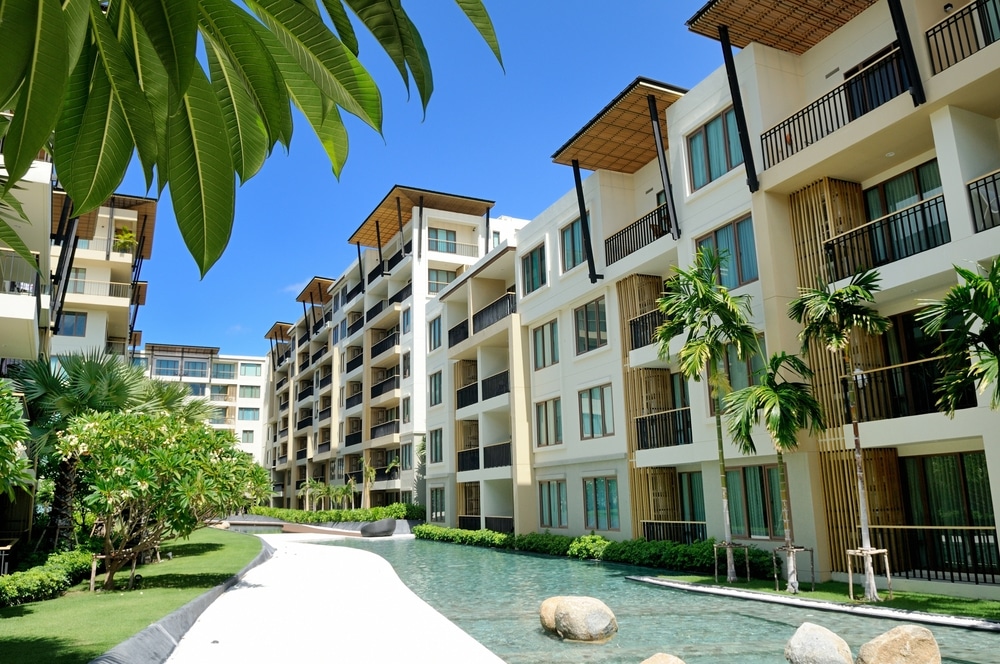
The growth of Phuket’s property market
Phuket has experienced significant growth in its property market over the years.
The combination of stunning beaches, world-class resorts, and a growing number of international flights has made it a sought-after destination for both holidaymakers and real estate investors.
The demand for properties, both for sale and for long-term rental, continues to rise.
Popular areas for property investment in Phuket
Phuket offers a range of popular areas for property investment, including Patong, Kata, and Bang Tao.
These areas are known for their beautiful beaches, vibrant nightlife, and close proximity to amenities such as shopping malls, restaurants, and international schools.
It is important to research the different areas and consider factors such as rental yield, capital appreciation, and future development plans before making an investment decision.
Factors to consider when investing in Phuket
When investing in Phuket’s property market, it is important to consider factors such as location, property type, and potential rental income.
The proximity to a central mass transit station or a mass transport station can significantly increase the value of a property.
Additionally, it is advisable to work with a reliable real estate agent who has extensive knowledge of the local market and can help you find quality properties at the right price.
Navigating Property Taxes in Thailand for Foreign Buyers
Understanding property tax laws in Thailand
Thailand imposes property taxes on both residents and foreign property owners.
These taxes include an annual property tax and taxes on rental income.
It is important to understand the tax laws and obligations associated with owning property in Thailand to avoid any legal issues or penalties.
Tax obligations for foreign property owners
Foreign property owners in Thailand are required to pay annual property tax based on the assessed value of the property.
Additionally, they are subject to taxes on rental income earned from the property.
It is advisable to consult with a tax professional specializing in international taxation to ensure compliance with Thai tax laws.
Planning for property taxes and expenses
When investing in property in Thailand, it is essential to factor property taxes and other expenses into your financial planning.
This includes setting aside funds for annual property tax payments, as well as considering the costs associated with property maintenance, insurance, and management fees.
Proper financial planning will help you avoid any unexpected financial burdens.
The Role of a Real Estate Agent in Thailand’s Property Market
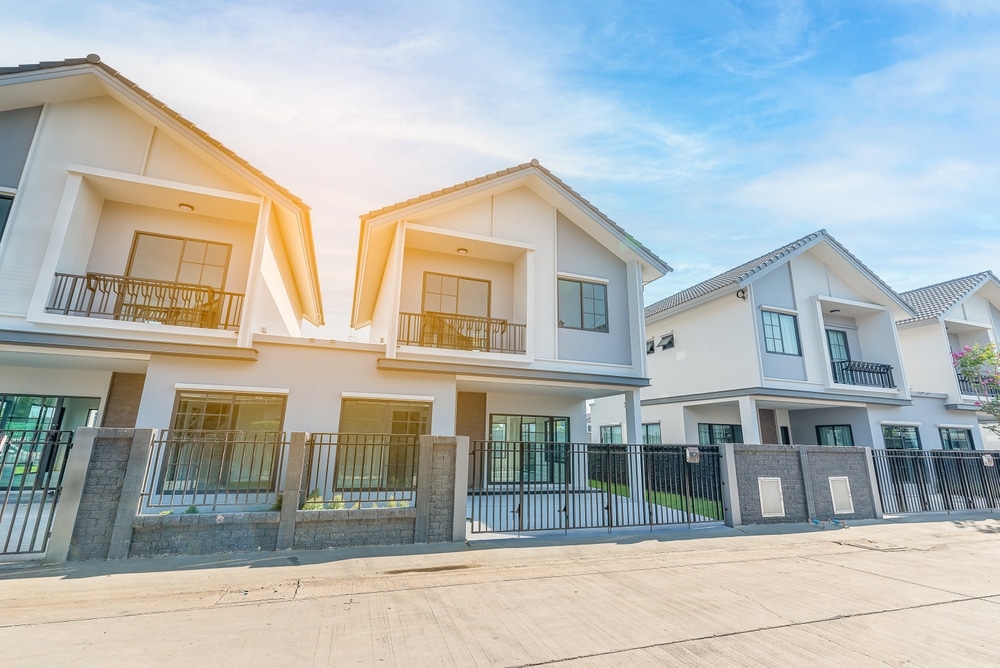
The benefits of using a real estate agent
A real estate agent can be a valuable asset when navigating Thailand’s property market.
They have in-depth knowledge of the local market, access to a wide range of properties, and can provide expert advice and guidance throughout the property purchasing process.
They can also help negotiate the best terms and conditions on your behalf.
How to choose a reliable real estate agent in Thailand
Choosing a reliable real estate agent is crucial to ensure a smooth property buying experience.
Look for agents who are licensed and have a good reputation in the industry.
It is also recommended to interview multiple agents, ask for references, and consider their expertise in the specific area and property type you are interested in.
The process of working with a real estate agent
When working with a real estate agent, they will help you identify suitable properties based on your requirements and budget.
They will arrange property viewings, assist with negotiations, and guide you through the legal and administrative processes involved in the property purchase.
Their expertise and knowledge in the local market will save you time and ensure a smooth transaction.
Factors Affecting Property Prices in Thailand
The impact of demand and supply on property prices
The property market in Thailand, like any other market, is influenced by the basic principles of supply and demand.
When there is a high demand for properties and a limited supply, property prices tend to increase.
Conversely, when there is an oversupply of properties and low demand, prices may decrease.
Economic factors influencing property prices
Economic factors play a significant role in determining property prices.
Strong economic growth, low unemployment rates, and stable inflation can drive property prices up.
On the other hand, economic downturns or instability can have a negative impact on property prices.
Regional differences in property price trends
Property price trends can vary across different regions in Thailand.
While popular tourist destinations such as Bangkok, Phuket, and Pattaya tend to have higher property prices due to high demand, less developed areas or areas further away from major cities may offer more affordable property options.
It is important to consider regional differences and conduct thorough research before making any investment decisions.
Stamp Duty and Other Costs Involved in Buying Property in Thailand
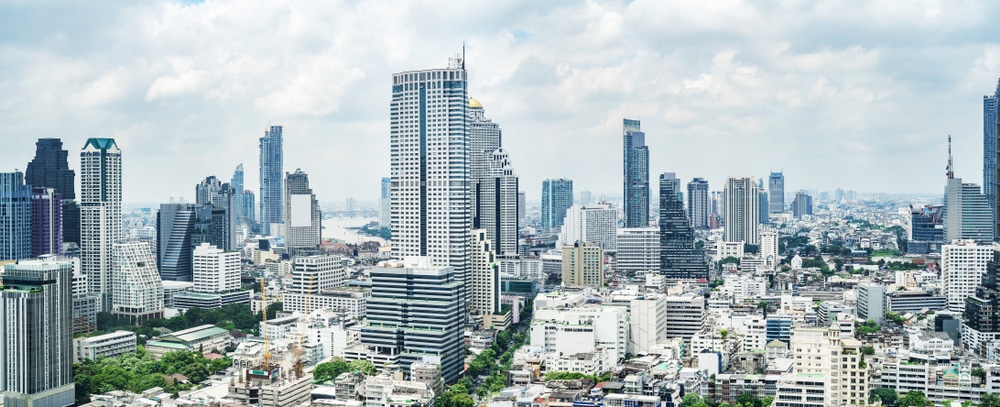
When buying property in Thailand, there are several costs to consider apart from the purchase price.
One of these costs is stamp duty, which is a tax imposed on the transfer of property ownership.
Understanding stamp duty is essential to ensure that you are prepared for the additional expenses that come with buying property in Thailand.
Understanding Stamp Duty in Thailand
Stamp duty is calculated based on the appraised value of the property.
The rate varies depending on the location and type of property.
It is important to consult with a legal professional to understand the exact stamp duty rates and payment process.
Additional Costs to Consider When Buying Property in Thailand
Apart from stamp duty, there are other costs involved in the property purchase process.
These may include legal fees, property registration fees, and transfer fees.
It is crucial to factor in these additional costs to estimate your total investment accurately.
Legal Fees and Other Professional Charges
Engaging legal professionals and other professionals, such as real estate agents or property consultants, is common when buying property in Thailand.
Legal fees and professional charges may vary, so it is advisable to compare and evaluate different professionals before making a decision.
How to Choose a Reliable Real Estate Agent in Thailand
Working with a reliable real estate agent is crucial to ensure a smooth and successful property purchase.
Here are some tips on finding a reliable real estate agent in Thailand.
Researching Real Estate Agencies in Thailand
Start by researching real estate agencies in Thailand.
Look for well-established agencies with a good track record and positive reviews.
Check their website and portfolio to get a better understanding of their expertise and experience.
Asking for Recommendations and References
Ask for recommendations from friends, colleagues, or local acquaintances who have previously purchased property in Thailand.
Their firsthand experience and feedback can provide valuable insights into choosing a reliable real estate agent.
Meeting with Potential Real Estate Agents
Once you have shortlisted potential real estate agents, schedule meetings with them to discuss your requirements and investment objectives.
Assess their communication skills, professionalism, and knowledge of the local property market.
Investing in Thai Condominiums: Tips and Guidelines
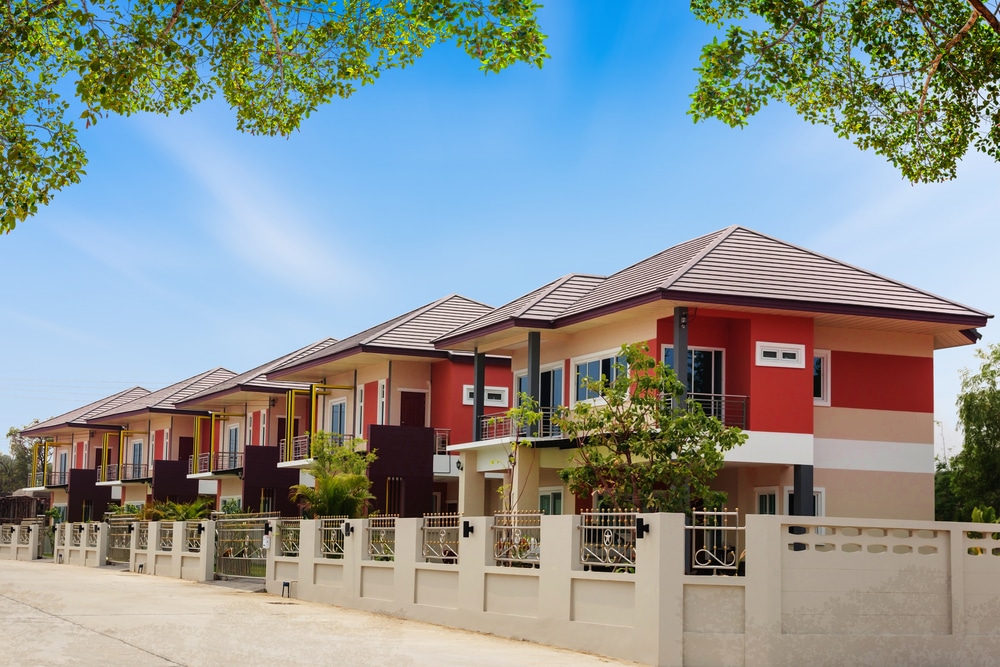
Thai condominiums are a popular choice for both local and foreign investors.
They offer attractive investment opportunities due to their more lenient foreign ownership laws and potential for rental income.
Here are some tips to consider when investing in Thai condominiums.
Understanding Foreign Ownership Laws for Condominiums in
Thailand
Foreigners are allowed to own condominium units in Thailand under certain conditions.
It is important to familiarize yourself with these laws, including the percentage of foreign ownership allowed in a building and the procedures for transferring ownership.
Choosing the Right Location for Your Condominium Investment
The location of your condominium investment plays a crucial role in its potential for capital appreciation and rental income.
Consider factors such as proximity to amenities, transportation links, and current and future development plans.
Assessing the Reputation and Track Record of Condominium
Developers
Before investing in a condominium project, it is essential to research the reputation and track record of the developers.
Look for established developers with a good portfolio of successful projects.
This will give you more confidence in the quality and potential of the property.
The Current State of Thailand’s Real Estate Market in 2022
In 2022, Thailand’s real estate market continues to show promise and attract both local and foreign investors.
Here is an overview of the current state of the market.
Overview of Thailand’s Real Estate Market in 2022
The real estate market in Thailand is diverse, with various property sectors experiencing growth.
The residential sector, including condominiums and landed properties, remains popular among investors, followed by the commercial and industrial sectors.
Trends and Developments in Different Property Sectors
Each property sector in Thailand has its own unique trends and developments.
For example, the tourism boom has led to increased demand for holiday homes and rental properties.
On the other hand, the commercial property market is driven by the expansion of businesses and the growth of e-commerce.
Impact of Foreign Investments on Thailand’s Real Estate
Market
Foreign investments have played a significant role in the growth of Thailand’s real estate market.
Investors from around the world are attracted to the country’s favorable investment environment, affordable property prices, and potential for high returns.
Evaluating the Return on Investment for Buying Property in Thailand

When considering a property investment, it is important to evaluate the potential return on investment.
Here are some factors to consider when evaluating the return on investment for buying property in Thailand.
Understanding Factors that Affect Property Prices in Thailand
Property prices in Thailand are influenced by various factors, including location, demand and supply dynamics, economic conditions, and government policies.
Analyzing these factors will give you a better understanding of the potential for capital appreciation.
Analyzing Rental Income Potential and Rental Market Trends
If you plan to generate rental income from your property investment, it is important to analyze the rental income potential and rental market trends in the area.
Consider factors such as rental demand, vacancy rates, and rental yields to make an informed decision.
Calculating Potential Return on Investment for Different
Property Types
Different property types, such as residential, commercial, or industrial, have varying potentials for return on investment.
Calculate the potential return on investment based on factors such as purchase price, rental income, operating expenses, and the expected holding period of the investment.
Conclusion
In conclusion, Thailand’s property market offers attractive investment opportunities for both local and foreign investors.
With steady growth, increasing demand, and a stable market, investing in Thai properties can yield long-term benefits.
Understanding the regulations and restrictions for foreign buyers, as well as the unique advantages and incentives for foreign investors, is crucial when considering Thai property investment.
Exploring the best places to buy property in Thailand, such as Bangkok, Phuket, and Chiang Mai, allows investors to capitalize on the diverse opportunities available.
Factors like location, rental yields, access to amenities, and future growth prospects should be carefully considered when selecting the right investment location.
Navigating the buying and selling process in Thailand requires understanding the legal and administrative procedures involved.
Engaging the services of real estate agents, lawyers, and other professionals ensures a smooth transaction and protects your interests throughout the process.
Factors affecting property prices in Thailand, including supply and demand, economic conditions, and regional differences, should be analyzed to make informed investment decisions.
Additionally, understanding the costs and taxes associated with buying property, such as stamp duty and other expenses, helps in accurate financial planning.
Working with a reliable real estate agent is crucial for a successful property purchase in Thailand.
Conduct thorough research, ask for recommendations, and meet with potential agents to ensure you choose a trustworthy professional who understands your needs and the local market.
Evaluating the return on investment involves considering factors like property price trends, rental income potential, and calculating potential returns for different property types.
Proper analysis and planning will help you make informed investment decisions and maximize your returns.
Frequently Asked Questions
Can foreigners buy property in Thailand?
Yes, foreigners are allowed to buy property in Thailand.
However, there are certain rules and restrictions that you need to be aware of.
What is the process of buying a property in Thailand?
The process of buying a property in Thailand involves several steps.
First, you need to find a property that you’re interested in.
Then, you should hire a reputable Thai estate agent to help you with the purchase.
Once you’ve found a property and negotiated the price, you’ll need to make a deposit and sign a purchase agreement.
After that, you’ll need to complete all the necessary paperwork, including transferring ownership and paying the required taxes and fees.
Are there any restrictions on buying Thai property as a foreigner?
Yes, there are certain restrictions on buying Thai property as a foreigner.
For example, foreigners are not allowed to own land directly in Thailand, but they can own buildings and immovable property businesses through a leasehold or freehold condominium arrangement.
What are the investment objectives for buying property in Thailand?
The investment objectives for buying property in Thailand can vary from person to person.
Some people buy property in Thailand as a holiday home for their personal use, while others buy property as an investment for rental income or capital appreciation.
How is the Thai economy affecting the property market in Thailand?
The Thai economy plays a significant role in the property market in Thailand.
Economic factors such as the country’s GDP growth, inflation rate, and employment rate can influence property prices and demand.
Economic slowdowns can have a negative impact on the property market, while economic growth can lead to increased property investment.
Are there any legal requirements for buying a property in Thailand?
Yes, there are legal requirements for buying a property in Thailand.
As a foreigner, you’ll need to have a valid visa to stay in the country, and you’ll also need to provide proof of funds to purchase the property.
Additionally, it’s advisable to hire a Thai lawyer who specializes in real estate to handle the legal aspects of the transaction.
Can I buy property on the beach in Thailand?
Yes, you can buy property on the beach in Thailand.
Thailand is known for its beautiful beach resorts, and there are plenty of beachfront properties available for sale.
However, beachfront properties tend to be more expensive compared to properties located further inland.
Are there any investment promotion programs for foreigners buying property in Thailand?
Yes, there are investment promotion programs available for foreigners buying property in Thailand.
The Thai government offers incentives and benefits to foreign investors who qualify for these programs, such as tax breaks and easier visa regulations.
What are the average property prices in Thailand?
The average property prices in Thailand can vary depending on the location and type of property.
In general, property prices are higher in popular tourist destinations and major cities compared to rural areas.
It’s always a good idea to do thorough research and consult with a local real estate expert to get an accurate estimate of property prices in a specific area.




















